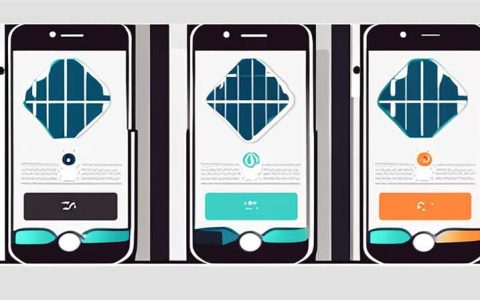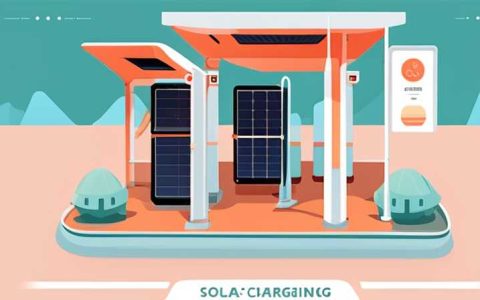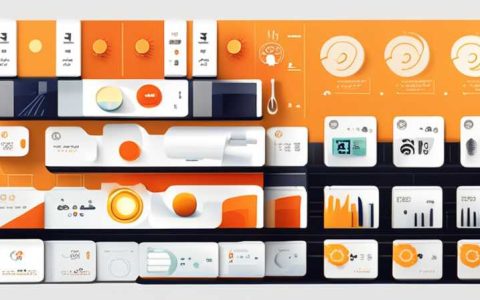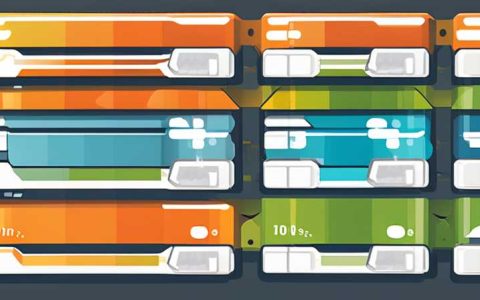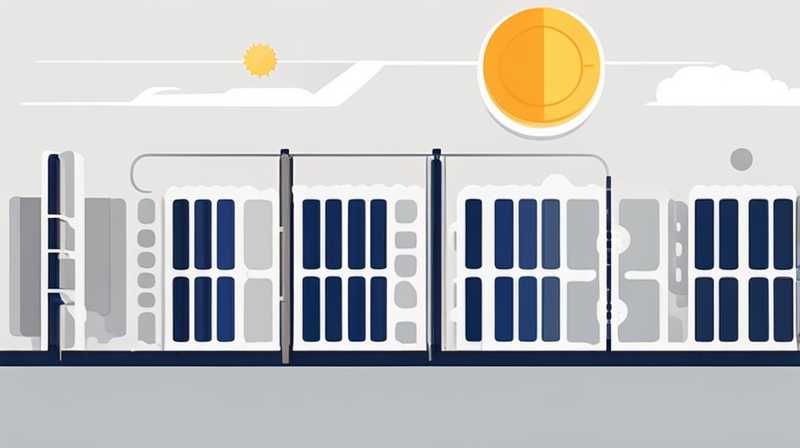
The edge aluminum of solar panels is typically made from 6063 aluminum alloy, which is prized for its excellent corrosion resistance and favorable malleability. This specific alloy undergoes processes that enhance its ability to withstand environmental stressors, thereby prolonging the lifespan of solar modules. Aluminum alloy choices are critical because they directly affect the structural integrity and efficiency of solar panels. The edge aluminum is essential in ensuring the frame’s durability, protecting the photovoltaic cells, and allowing for optimal power output. This alloy is often used because it strikes a balance between strength, weight, and cost, making it ideal for construction in the energy sector.
- THE IMPORTANCE OF ALUMINUM IN SOLAR PANELS
Solar energy technology has gained immense traction in recent years as a sustainable energy source. Aluminum plays a pivotal role in enhancing the performance of solar panels. Its lightweight yet robust characteristics make it an ideal material for the structural frames of solar modules. Their primary function is to secure and protect the delicate photovoltaic cells housed within, which convert sunlight into electricity. Given the ever-increasing demand for clean energy, the properties of aluminum need to be examined more deeply to understand how it contributes to the efficacy of solar panel installations.
Aluminum’s use in solar panel construction isn’t merely for aesthetics or weight reduction. The structural frames made from high-grade aluminum alloys are designed to endure harsh weather conditions, including high winds, heavy snowfall, and extreme temperatures. This durability ensures that solar panels maintain operational integrity over their lifespan, which is typically around 25 years or more. The resilience provided by aluminum ensures that panels can operate at peak efficiency while protecting against potential hazards over time.
- UNDERSTANDING ALUMINUM ALLOYS
Different aluminum alloys possess varying properties that suit specific applications within solar panel manufacturing. 6063 and 6005 are among the most common grades used for edge aluminum. The choice of alloy depends on various factors, including strength requirements, flexibility during installation, and overall cost-effectiveness. In particular, alloy 6063 is popular due to its excellent workability and aesthetic finish, making it a common choice in the solar industry.
Moreover, aluminum’s corrosion resistance is a key factor that cannot be overlooked. The inherent properties of aluminum allow it to form a natural oxide layer that serves as a protective barrier against corrosive elements. This characteristic is particularly important for solar panels, which are often exposed to environmental conditions that may hasten deterioration in less durable materials. The selection of a suitable aluminum alloy significantly influences how well solar panels will resist these conditions, thereby affecting their longevity and reliability.
- DESIGN CONSIDERATIONS FOR SOLAR PANELS
When designing solar panels, engineers must consider various elements, such as load-bearing capacity and adaptability to diverse installation environments. Using aluminum enables enhanced design flexibility, which is crucial for adapting to varying structural needs. The edge aluminum framework allows for the successful integration of mounting systems while ensuring that the solar cells remain securely in place.
Additionally, the lightweight nature of aluminum contributes to the overall efficiency of solar installations. Heavier materials may lead to increased structural loads on rooftops or ground-mounted systems, necessitating more robust support structures that can complicate installation and elevate costs. In contrast, aluminum frames offer a balance between strength and weight, leading to more straightforward installation processes.
Beyond practical considerations, the design of solar panels must also account for aesthetics, particularly as residential solar installations have grown in popularity. Aluminum’s versatility allows for a sleek finish, contributing to a panel’s overall appeal, which can be an influencing factor for homeowners. Therefore, the choice of aluminum for edge frames not only enhances functionality but also resonates with aesthetic considerations that appeal to consumers.
- ENVIRONMENTAL IMPACT AND SUSTAINABILITY
In recent years, sustainability has become a crucial aspect of all manufacturing processes. Aluminum is highly recyclable, making it an environmentally friendly choice in solar panel production. The recycling process for aluminum retains around 90% of the metal’s original properties, allowing manufacturers to repurpose scrap material effectively. This reduces the environmental footprint associated with the extraction and processing of new aluminum, which can be energy-intensive.
Moreover, the lightweight nature of aluminum contributes positively to sustainability via transportation efficiencies. Lighter materials mean lower fuel consumption during shipping and installation, further enhancing the eco-friendly profile of solar panel systems. Understanding the full lifecycle of edge aluminum in solar panels provides valuable insights into their sustainable benefits.
The role aluminum plays in minimizing environmental impact extends beyond its recycling capability. By improving the efficiency of solar panels, high-quality aluminum alloys directly contribute to increasing the amount of clean energy harnessed. This reduction in reliance on fossil fuels is a critical component in combating climate change and promoting environmental stability.
- COST ANALYSIS OF ALUMINUM IN SOLAR PANELS
The financial component of utilizing aluminum in solar panel construction deserves meaningful examination. While the upfront cost may appear higher when compared to other materials, the long-term benefits of aluminum significantly outweigh initial investments. Its durability reduces ongoing maintenance costs, and the corrosion resistance of quality aluminum minimizes the need for replacement.
Additionally, the market for solar panels has been on an upswing, with economies of scale resulting in reduced prices for aluminum sourcing. As technological advancements continue to optimize production processes, the cost of aluminum has decreased, making it more accessible to solar manufacturers. Consequently, this trend not only bolsters the industry but also enhances the competitiveness of solar energy as an alternative to conventional energy sources.
Investing in aluminum as a primary material for solar panel edges can yield considerable ROI over time. The enhanced longevity, lower maintenance costs, and improved efficiency of solar installations are essential considerations that proponents must weigh. This financial perspective is especially relevant for businesses and homeowners evaluating the benefits of solar panel installation, considering both the upfront expenditures and potential savings in the long run.
- FUTURE TRENDS IN SOLAR PANEL TECHNOLOGY
Emerging trends in solar panel technology reveal an ongoing dedication to innovation in materials and design efficiency. With the continuous development of aluminum alloys, the solar industry is seeing improvements in both performance and sustainability. Researchers are exploring advanced aluminum alloys that aim for even greater strength-to-weight ratios, which could lead to lighter panels that offer enhanced installation flexibility.
Furthermore, the integration of smart technologies, such as IoT, is expected to shape the future of solar energy systems. These advancements could run concurrently with aluminum innovations to create more efficient, responsive, and interconnected solar panel networks. This development could provide users with real-time data analysis, thereby optimizing their energy consumption and enhancing the overall functionality of solar installations.
As regulatory frameworks increasingly align with sustainability efforts, materials like aluminum will continue to gain traction across the solar industry. With a growing emphasis on reducing carbon footprints in manufacturing processes, the use of recyclable aluminum will likely become even more widespread. Consequently, future solar panels may increasingly incorporate advanced aluminum alloys, coupled with technological innovations, which contribute to both performance improvement and environmental conservation.
FREQUENTLY ASKED QUESTIONS
WHAT ARE THE ADVANTAGES OF USING ALUMINUM ALLOY IN SOLAR PANELS?
Utilizing aluminum alloy in solar panel construction presents numerous advantages. Preventing corrosion and ensuring structural integrity under various environmental conditions are paramount benefits. Aluminum alloys have a natural resistance to rust, maintaining their aesthetic appeal and functionality over time. Additionally, the lightweight nature of aluminum alloys simplifies installation, reducing labor costs and allowing for faster setup.
Another significant advantage is the recyclability of aluminum. This metal can be recycled indefinitely without losing its original properties, which significantly cuts down on waste and resource consumption. By utilizing aluminum in solar panels, manufacturers can align with sustainability goals while providing energy solutions that last. The overall lifecycle of aluminum as a material reinforces its position as a top choice for creating durable and environmentally friendly solar technology, thus enhancing the overall appeal of investing in solar energy systems.
HOW DOES ALUMINUM IMPACT SOLAR PANEL EFFICIENCY?
The efficiency of solar panels can be affected by the materials used, and aluminum plays a crucial role in this equation. Aluminum frames enhance the stability and protection of photovoltaic cells, meaning these components can operate under optimal conditions. By preventing physical damage from environmental stressors, aluminum helps sustain the functionality of solar cells, which is essential for maximizing energy output.
Moreover, aluminum’s lightweight and durable properties facilitate better installation methods, reducing the potential for misalignment or structural stress that could impair efficiency. With a secure frame, solar panels are less likely to experience degradation from exposure to wind and weather-related challenges. This protective capability significantly contributes to the integrity of the photovoltaic cells, ensuring they continue to perform at their highest efficiency over time.
WHAT IS THE AVERAGE LIFESPAN OF SOLAR PANELS USING ALUMINUM FRAMES?
Solar panels equipped with aluminum frames generally boast a lifespan of 25 to 30 years. The material’s inherent durability supports this longevity, as the aluminum framework actively protects the delicate solar cells against harmful external elements. Manufacturers often provide lengthy warranties that reflect the robustness of aluminum, reassuring users that they are investing in a long-lasting energy solution.
Environmental exposure can affect the performance and longevity of any construction material, but the adaptability of aluminum alloys ensures that solar panels can withstand a variety of conditions. With minimal maintenance required and a robust frame that resists corrosion, homeowners can expect their solar systems to deliver efficient energy production well into their lifecycle. Thus, the choice of aluminum as a framing material significantly influences the essential factor of longevity in solar panel performance.
The use of aluminum in solar panels embodies a detailed commitment to performance, durability, and sustainability. Attention to the properties of aluminum alloys—most notably, 6063—demonstrates a deep understanding of material science that supports increased energy efficiency and structural integrity. The comprehensive advantages associated with aluminum’s recyclability, lightweight nature, and overall resilience further affirm its pivotal role in this sector’s growth.
With ongoing innovations in material technology and design approaches—coupled with a consistent focus on sustainability—the prospects for aluminum in solar energy applications appear exceptionally promising. As the demand for renewable energy solutions continues to escalate, the strategic integration of aluminum alloy in solar panel manufacturing will likely remain at the forefront of developments. Thus, not only does aluminum contribute significantly to the function and design of solar panels, but it also plays a vital role in supporting the global transition toward environmentally conscious energy practices.
Original article by NenPower, If reposted, please credit the source: https://nenpower.com/blog/what-kind-of-aluminum-is-the-edge-aluminum-of-solar-panels/




